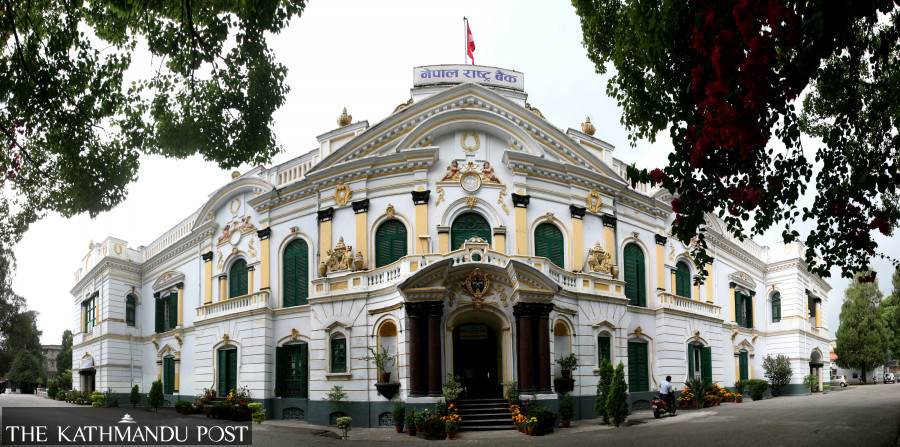Money
Central bank eases 100 percent margin provision on some items
The move comes after an improvement in the balance of payment and foreign exchange reserves.
Krishana Prasain
The central bank has rolled back its decision to keep a 100 percent margin provision on the import of construction material, seats and expansible polystyrene goods.
Issuing a circular on Friday, Nepal Rastra Bank said that it has also lifted the provision of keeping a 100 percent margin provision in construction material goods imported by the diplomatic missions, hospitals, mega projects on public-private partnerships or projects that are imposed with the Public Procurement Act.
The 100 percent margin provision was imposed on these sectors as well.
The central bank has lifted the provision to keep a 100 percent margin on the construction materials like tiles, marble and different types of stones, boards, sheets, building blocks and bricks of cement or artificial stones, and corrugated sheets among others.
“The central bank lifted the 100 percent margin provision on construction material to ease the progress of construction projects,” said Gunakar Bhatta, spokesperson of Nepal Rastra Bank.
Similarly, the mandatory 100 percent import margin has also been lifted on the import of seats used for motor vehicles, bamboo or rattan seats, upholstered seats, wooden frame seats, and commode chairs used by physically disabled persons. The margin has also been lifted on expansible polystyrene and polymers of styrene, according to the central bank circular.
“We will gradually review the goods listed in 100 percent margin provision with the improvement in the balance of payment and foreign exchange reserves,” Bhatta said. “We are observing the situation of the external sector and as soon as the situation gets comfortable, we will review the measures that have been taken to discourage imports gradually,” he said.
On December 20 last year, the central bank made it mandatory for importers to keep a 100 percent margin amount to open a letter of credit (LC) to import the listed goods. As potential importers have been relying on short-term credit without depositing any cash, the central bank's directive is expected to stem the import of these products.
With the 100 percent margin provision, according to the Nepal Rastra Bank, traders need to maintain a 100 percent cash margin to import alcoholic drinks; tobacco; silver; furniture; sugar and foods that contain sweets; glucose; mineral water; energy drinks; cosmetics; shampoo; hair oils and colours; caps; footwear; umbrellas; construction materials such as ceramics among others.
Importers of motorcycles and scooters and diesel-powered private automobiles also need to maintain a 50 percent cash margin with banks to open letters of credit.
And the central bank’s directive issued on February 9 increased the number of import items requiring a 100 percent cash margin to 43 while it fixed the cash margin needed for importing four types of goods at 50 percent.
Nepal’s imports declined by 18 percent to Rs532.69 billion in the first four months of the current fiscal year ended in mid-November.
The government collected revenue totalling Rs231.33 billion in the first quarter of the current fiscal year against the target of Rs275.71 billion.
The directive issued on April 26 embargoed 10 types of goods described as luxury items, among them mobile sets worth over $600 and motorcycles with a capacity of over 250 cc. Harsher restrictions followed, and mobile sets costing more than $300 and motorcycles with a capacity of more than 150 cc were banned.
On August 30, the government loosened the restrictions and permitted the import of diamonds, large television sets, toys, cards, snacks and tobacco.
The ban on automobiles, mobile phones, liquor and heavy motorcycles will remain in place until December 15.
Based on the imports of the first three months of the current fiscal year, the foreign exchange reserves of the banking sector are sufficient to cover the prospective merchandise imports of 9.6 months, and merchandise and services imports of 8.3 months.
According to the first quarter macroeconomics report of the central bank, the balance of payments remained at a surplus of Rs12.43 billion and gross foreign exchange reserves stood at $9.48 billion.




 9.7°C Kathmandu
9.7°C Kathmandu















